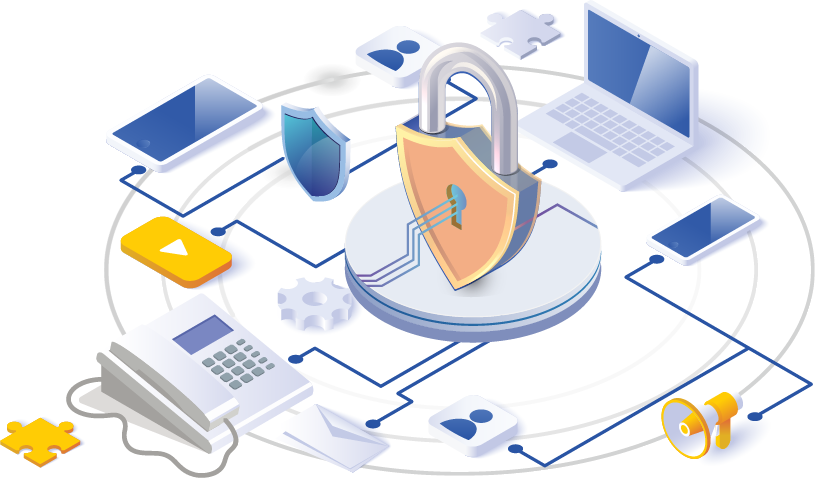Supply Chain Attacks hit VoIP industry
What we can learn from the recent 3CX attack:
The recent supply chain attack on international VoIP software, 3CX, shows that not even the VoIP industry is immune to cybercrime.
Voice over Internet Protocol (VoIP) is a communication technology that has been widely adopted by businesses of all sizes around the world. It provides a cost-effective and flexible way to communicate over the internet, but like any other technology, it has its security challenges. VoIP security threats are a major concern for businesses that rely on this technology to communicate with their clients, partners, and employees.
The 3CX attack has been likened to the December 2020 SolarWinds attack, also known as the Sunburst attack. The attack affected SolarWinds, a US-based software company that provides network management tools to thousands of organisations, including many US government agencies and Fortune 500 companies.
VoIP Security Threats
VoIP security threats come in many forms, including eavesdropping, hacking, spamming, and identity theft. Eavesdropping is the act of listening in on a conversation without the knowledge or consent of the parties involved. This can be done by intercepting VoIP packets as they traverse the internet. Hacking involves gaining unauthorised access to a VoIP network, system, or device. Hackers can use various techniques to gain access, including phishing, social engineering, and password cracking.
Spamming is the sending of unsolicited messages, usually in the form of voice calls or text messages. Spam calls can be used to promote products or services, or to gather sensitive information from unsuspecting victims. Identity theft is the act of stealing someone’s personal information, such as their name, address, and social security number, for fraudulent purposes.
To protect against these threats, businesses should take care that their VoIP providers, and themselves, are taking all possible security measures, such as encryption, authentication, and access control.
Evan Damon, Channel Manager at Wanatel, a leading VoIP vendor in South Africa, says securing VoIP systems requires implementing basic security measures such as securing passwords and usernames, having firewalls in place, and monitoring suspicious activity with a clear plan of action in case of an attack. Additionally, administrators should carefully control VoIP features by disabling automated forwarding and changing factory default settings for ports to make it harder for hackers to gain access.
Supply Chain Attacks and VoIP Security
A supply chain attack is a type of cyberattack that targets the software or hardware components of a system. This type of attack involves compromising the supply chain of a vendor or manufacturer to gain unauthorised access to their customers’ systems. In the case of VoIP, a supply chain attack could involve compromising the software or hardware components of a VoIP system or device, such as the router or server.
As mentioned, in the SolarWinds Sunburst attack, hackers inserted malicious code into a software update that was distributed to SolarWinds customers and gained the hackers access to customers’ systems. The attack went undetected for months, and it is estimated that up to 18,000 organisations may have been affected.
To protect against supply chain attacks, businesses should implement strong vendor management practices, including vetting vendors for security risks and monitoring vendor activity on their systems. Businesses should also implement security measures, such as intrusion detection and prevention systems, to detect and block unauthorized access to their systems.
Damon emphasizes the importance of implementing layers of defence in security, similar to securing a house by locking doors and gates and not sharing keys. He points out that even armed response companies are of little use if basic security measures are not in place. While VoIP can simplify communication systems and network environments, it must be properly deployed and configured to ensure security against cyber threats.
For further information on Wanatel’s wholesale VoIP offerings, please visit their website at www.wanatel.co.za


